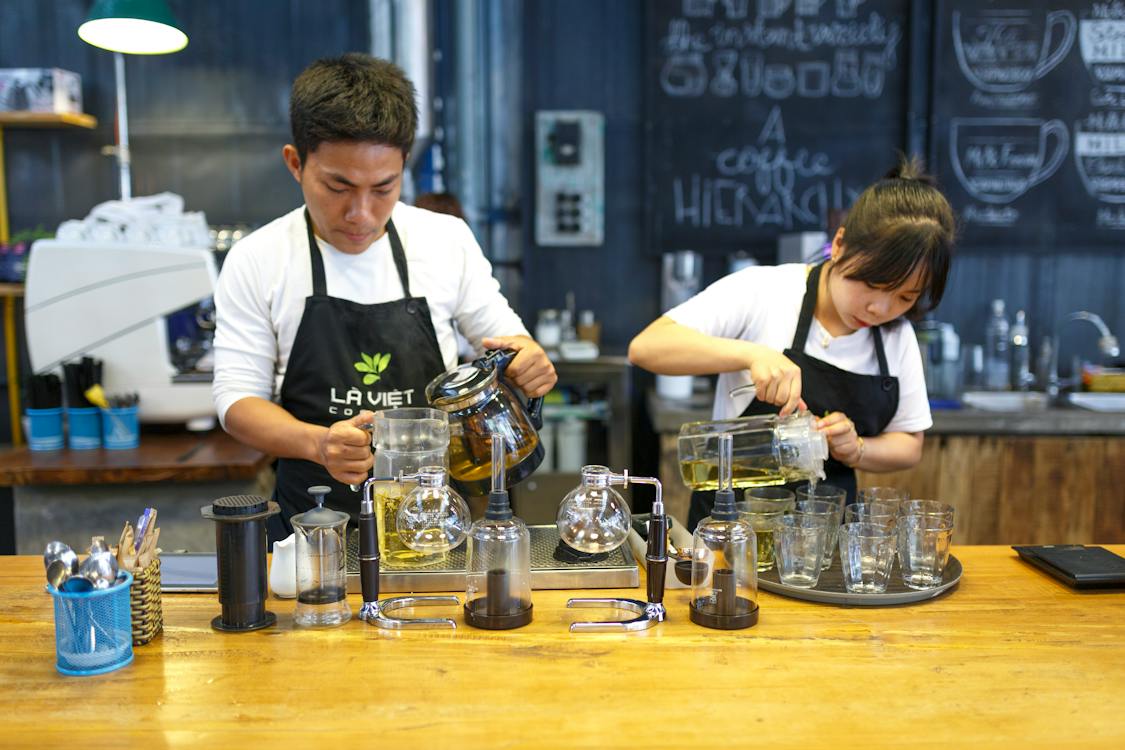As the world begins to reopen its doors, the food industry finds itself in the middle of an exciting rebirth. Foodies are either finding their way back to their old nooks or venturing into new spots to fall in love with. The surge of customers dining back at restaurants has generated increased prospects for profitability among business proprietors. And at the center of this foodie renaissance is creating the optimal experience to foster a loyal customer base.
At the center of this growth, food servers play a vital role in enhancing customer satisfaction by delivering quality service, attending to customers’ needs, and creating a positive dining experience.
What to Expect
Being a waiter is a highly desirable occupation that provides an income-generating opportunity irrespective of prior experience. For many individuals, it serves as a stepping stone towards a brighter future, while some individuals have chosen to pursue it as a long-term career.
A Waiter/Waitress, also known as a Server, plays a crucial role in creating a positive dining experience for patrons at food establishments through the provision of outstanding customer service. Their responsibilities encompass welcoming diners, recording their orders, coordinating with kitchen staff, and delivering meals and beverages to the appropriate tables.
Typically, servers are entrusted with the following tasks and obligations:
- Welcoming and attending to guests, taking their food and beverage orders
- Remaining attentive to the requirements of guests within the dining area
- Conveying food items from the kitchen to the guests’ tables
- Verifying the accuracy and presentation of food orders prepared by the kitchen staff
- Adhering to health code regulations concerning food handling
- Completing shift duties, such as transporting cup racks to the service station, rolling silverware, clearing tables in advance, wiping tables, removing debris, and other related tasks.
Skills and Qualifications of a Waiter:
To get all tasks done there are skills and qualifications that are crucial for servers to excel in their role and provide exceptional customer service. Proficient waiters should possess a skill set enabling them to operate with speed, demonstrate attentiveness to details, and effectively manage multiple responsibilities simultaneously. For instance:
- Age requirements – in certain places, Waiters must meet specific age criteria to serve alcohol in dining establishments.
- Customer service expertise – above all else, Waiters are professionals in customer service, necessitating the development of skills to effectively interact with the public.
- Physical capability – given the physical demands of the job, Waiters should possess the ability to stand for extended periods and handle tasks such as carrying trays of food and racks of cups. Although the industry is now moving toward creating a more adaptable environment to welcome employees that are differently abled as well as the elderly.
- Critical thinking and time management – waiters must excel under pressure, especially during busy periods when the kitchen staff may be overwhelmed. They need to coordinate flow of orders in and out into the tables as well as keep the guests satisfied.
Going the Extra Mile
Choosing to work as a waiter or waitress can offer fulfilling career prospects. However, similar to any occupation, this line of work entails both advantages and disadvantages. What attributes contribute to being an exceptional server? Here are the some qualities that define a proficient waiter or waitress:
-
Improve your PR skills.
Establishing rapport with customers and possessing an amiable personality is crucial in this industry. The server-customer relationship is delicate, and the quality of service plays a significant role here. Cultivating trust from both customers and colleagues necessitates maintaining a positive and optimistic attitude. Moreover, adept servers can easily handle stressful situations, resolve conflicts gracefully, and embrace feedback constructively to enhance their performance.
-
Possess comprehensive menu knowledge.
Being well-informed about the menu is vital to address customer inquiries effectively. As a server, it is your responsibility to have a thorough understanding of the menu items, enabling you to make recommendations, provide information on available add-ons, and address basic concerns related to ingredients or allergies. Acquiring menu expertise enables you to efficiently accommodate more guests, handle additional orders per shift, and potentially optimize table turnover time.
-
Exhibit adaptability.
Success in various hospitality environments relies on the server’s ability to adapt, display friendliness, and showcase expertise. Different restaurants have distinct expectations for their servers. For instance, a fine dining establishment may prioritize wine knowledge, while a breakfast joint may emphasize swiftness and precision. A skilled waiter or waitress should possess the flexibility to adapt to such variations and excel in different settings.
Maximizing Tips: Strategies for Increasing Earnings as a Server
-
Create a favorable impression by introducing yourself
Enhance your likability and foster positive customer connections by initiating introductions with your name.
-
Forge a personal connection
By attentively catering to customers’ needs and displaying genuine enthusiasm, you can establish a sincere bond with them. When describing specific dishes, share your personal enjoyment of them and emphasize the delightful taste and flavor profiles. This approach allows customers to appreciate your honest recommendations and fosters a deeper connection.
-
Master the art of upselling
Shift the focus from upselling products to enhancing experiences. To excel in upselling, engage in discovery questions that unveil more about the customer, actively listen to their responses, and offer appropriate suggestions accordingly. For instance, when serving a customer celebrating a special occasion, consider recommending a bottle of champagne instead of a single glass and provide guidance on the ideal pairing.
-
Deliver exceptional service consistently
Customers anticipate satisfactory service, but to earn generous tips, you must surpass their expectations. A server who receives gratifying tips often demonstrates the ability to authentically address customers’ concerns and establish genuine connections with them on a personal level.
Conclusion
In all restaurants, bars and food spots, the main duty of a waiter is to take customer orders and deliver food and beverages, all while keeping overall customer experience their top priority. Consequently, servers must consistently be attentive and ready to interact with patrons. Cultivating effective server skills heavily relies on providing a satisfying customer experience.
Pay attention. Be polite. Be consistent.

